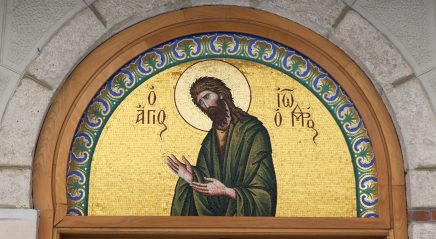Lectionary for Dec. 31, 2023
First Sunday of Christmas
Isaiah 61:10–62:3; Psalm 148;
Galatians 4:4-7; Luke 2:22-40
When was the last time you had a really good cry? Usually we weep when someone we love dies, a relationship ends or we lose the hope of a dream ever coming to fruition. My sons cried the last time we moved. I cried when listening to the words of Isaiah 62:1-4 sung by Sheli Myers in her song “Hephzibah” (“My Delight is in Her”). Isaiah’s words describe the days when Jerusalem will be known more for righteousness than violence and desolation at human hands. I cry every time I hear that song as I wait for Isaiah’s words to finally be realized. How long can we wait for a hope deferred? In the Gospel reading appointed for this week, we have the stories of two faithful people who waited to realize their hope.
When I think about Simeon, the man who was told that he wouldn’t die before he saw the Messiah, I always wonder about the occasion of this promise from God. Did Simeon grow old, waiting for the hope of his people, and then was assured in his latter years by God that his long life wouldn’t end until he saw the chosen one? Or, as I am getting older and have more health scares, I wonder if Simeon maybe wasn’t that old at all? Perhaps he had received terrible news that he wasn’t long for the world. Perhaps as a salve to his imminent death, some angel told Simeon that, although he would die long before his old age, he would have the pleasure of seeing the one who would bring light of revelation to the Gentiles, glory to Israel and salvation for all.
The text only tells us that the righteous and devout Simeon had looked for the consolation of Israel that Isaiah 40 spoke of hundreds of years earlier. The Spirit of God brought Simeon to the temple, where he caught sight of the infant messiah. However long he had waited to behold Jesus, it seems that along the way he had gained some insights into the Messiah’s role. God’s anointed one would be the cause of many falling and many being resurrected (I think we must read anastasin here as it is used almost everywhere else in the New Testament), a sign to be opposed, and a revealer of the contents of many hearts. His words finally spoken to the amazed Mary and Joseph, Simeon seems to have gone on his way to his death, grateful for the opportunity to see Jesus.
Let us be like Simeon and Anna who waited expectantly for the incarnation of the Christ.
In addition to Simeon, an old prophet served at the temple. Anna seems to have been one of the women who served at the entrance to the tabernacle and later the temple (Exodus 38:8, 1 Samuel 2:22), joining a list of named women prophets (Miriam in Exodus 15:20, Deborah in Judges 4:4, and Huldah in 2 Kings 22:14). While the text doesn’t mention Simeon’s age, we know that Anna was 84. We don’t know at what age she wed, but after only seven years of marriage she moved into the temple complex. After long years of service Anna decided she wouldn’t wait a single second longer and immediately went up to the holy family. She began to give thanks to God and taught about “him” (whether God or Jesus, I’ve never been certain) to all those who were looking forward to the redemption of Jerusalem.
Sadly, Luke didn’t record or have a source describing what the prophet Anna said. In any case, we know the topic—the consolation of Zion as it languished under Roman occupation. Anna, as a true prophet, spoke for God and described God’s will and emotions. God is a loving parent, who wishes to comfort all of God’s children.
Just before typing this reflection, I finished a Zoom call on how to deal with trauma caused by—and, in turn, causes—violent international conflicts. The trauma experts sounded a lot like Anna must have and grounded the work of trauma care in prophetic theology. God repeatedly promises in the Scriptures consolation for those who mourn. If God comforts those who mourn, who are we, as God’s people, to do otherwise?
As we wait to have all our hopes for peace and universal love of neighbor realized, let us not grow faint or weary. Let us be like Simeon and Anna who waited expectantly for the incarnation of the Christ. As we wait, let us be of good cheer, for the one who loves all humans has already overcome the world (John 16:33).









